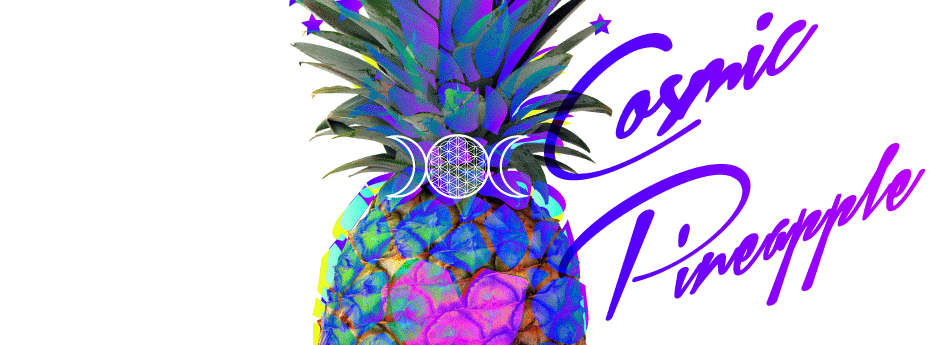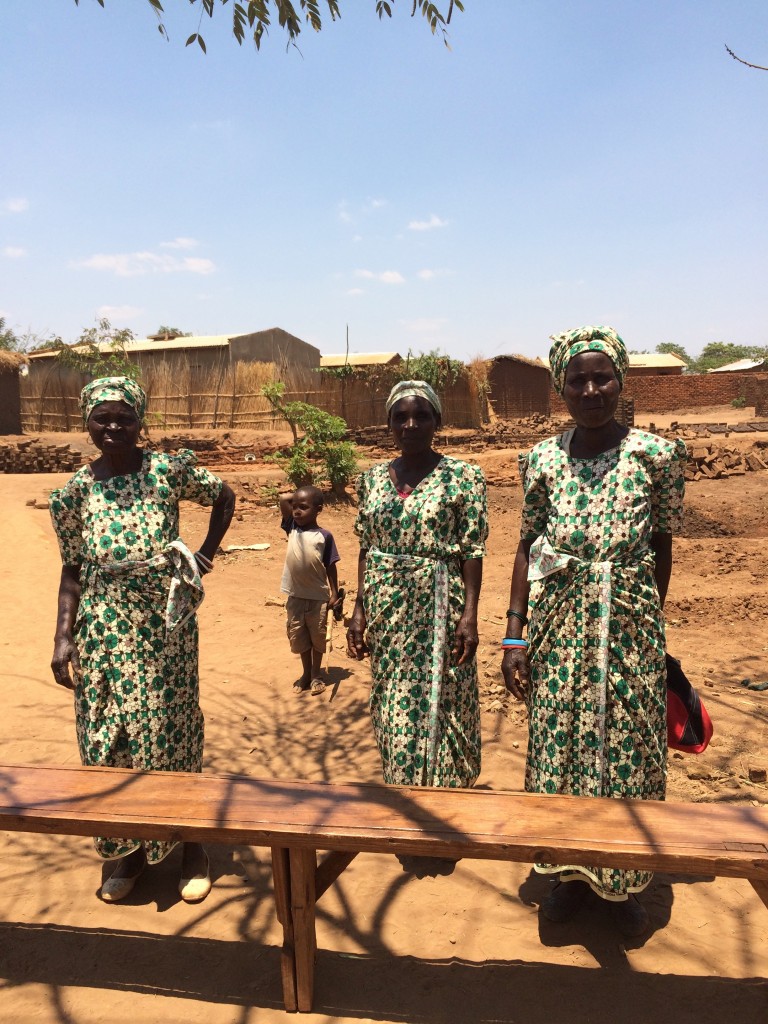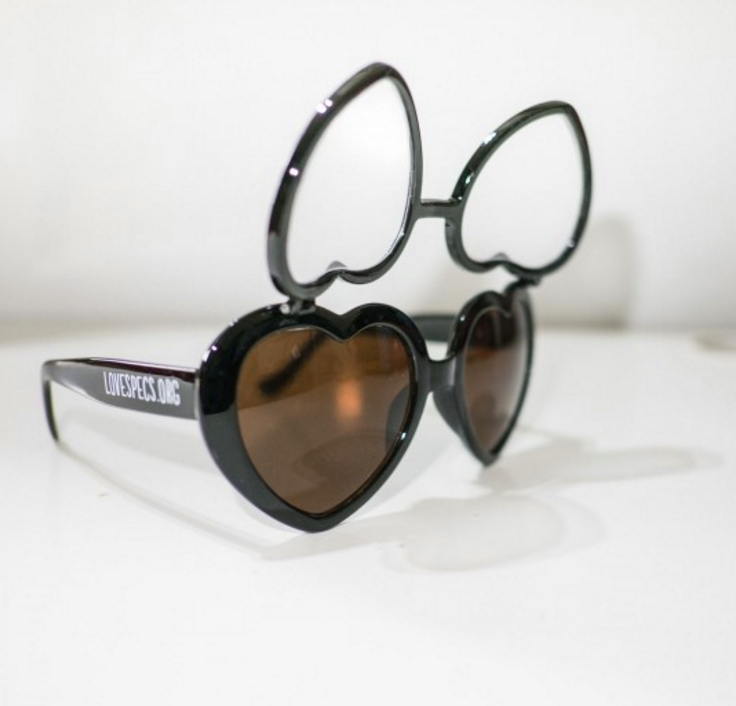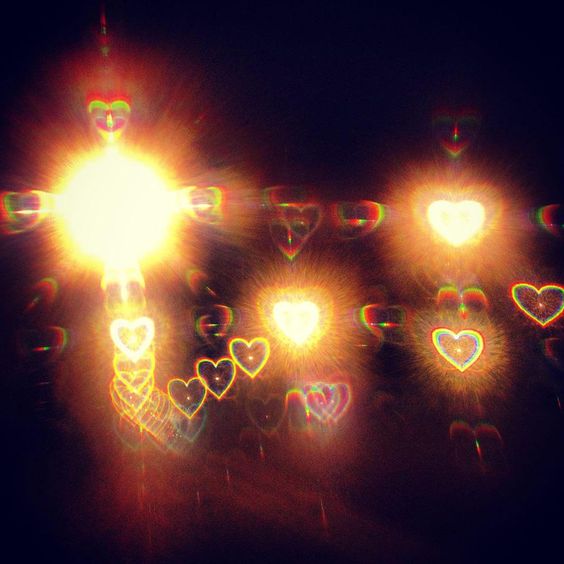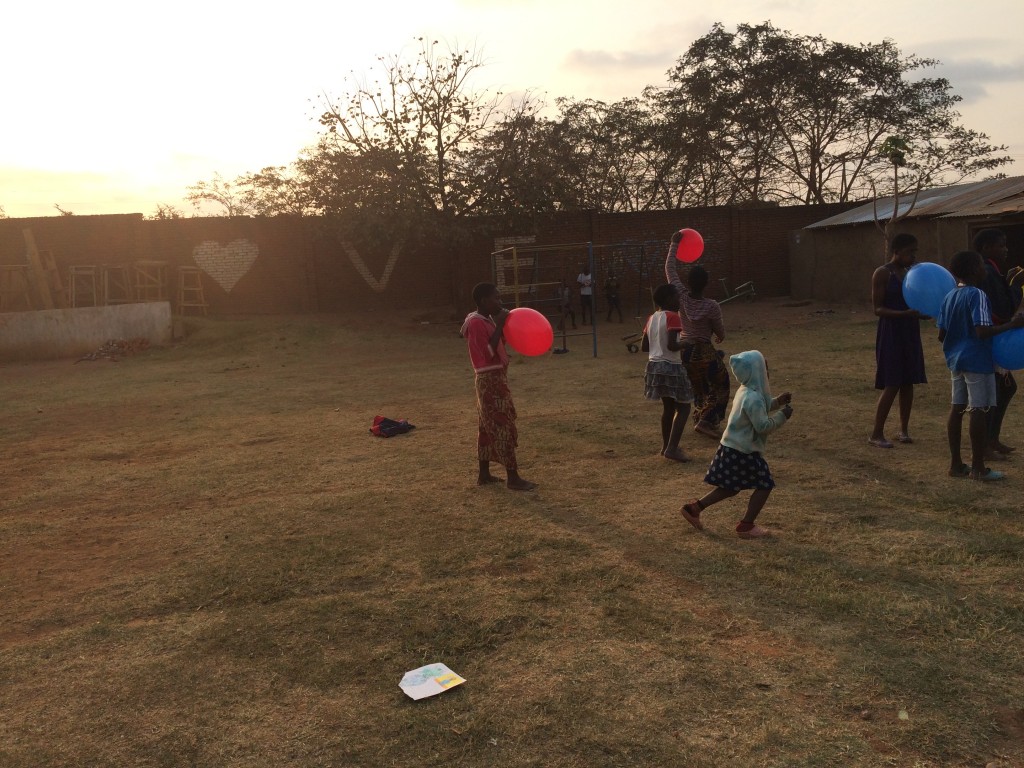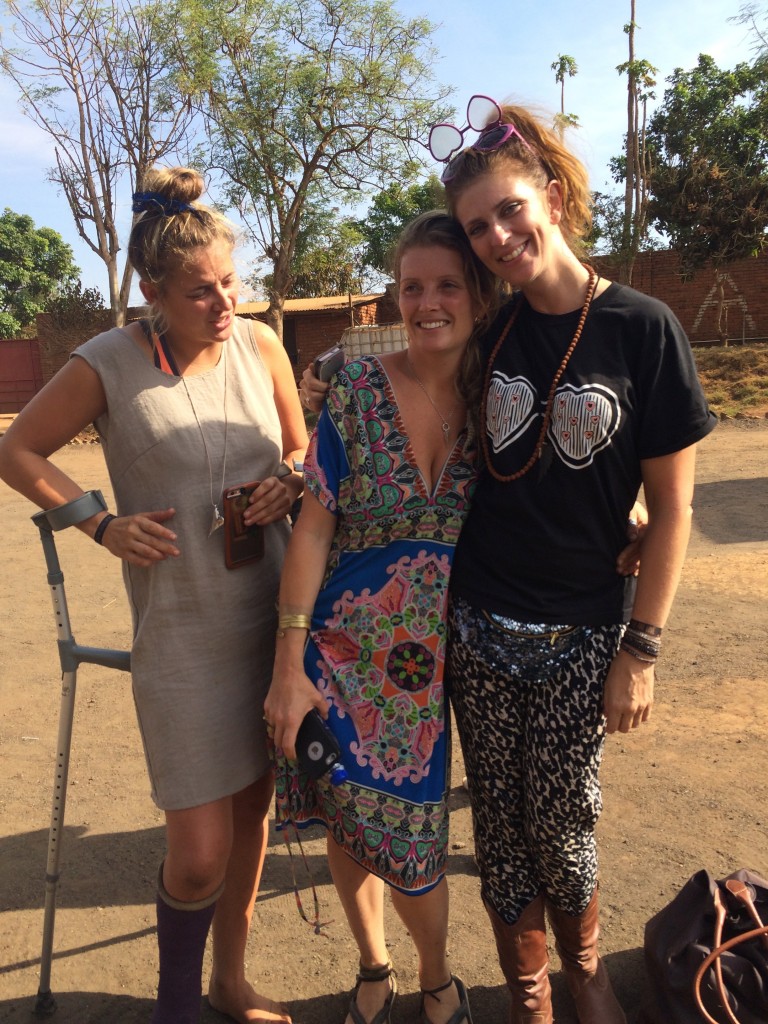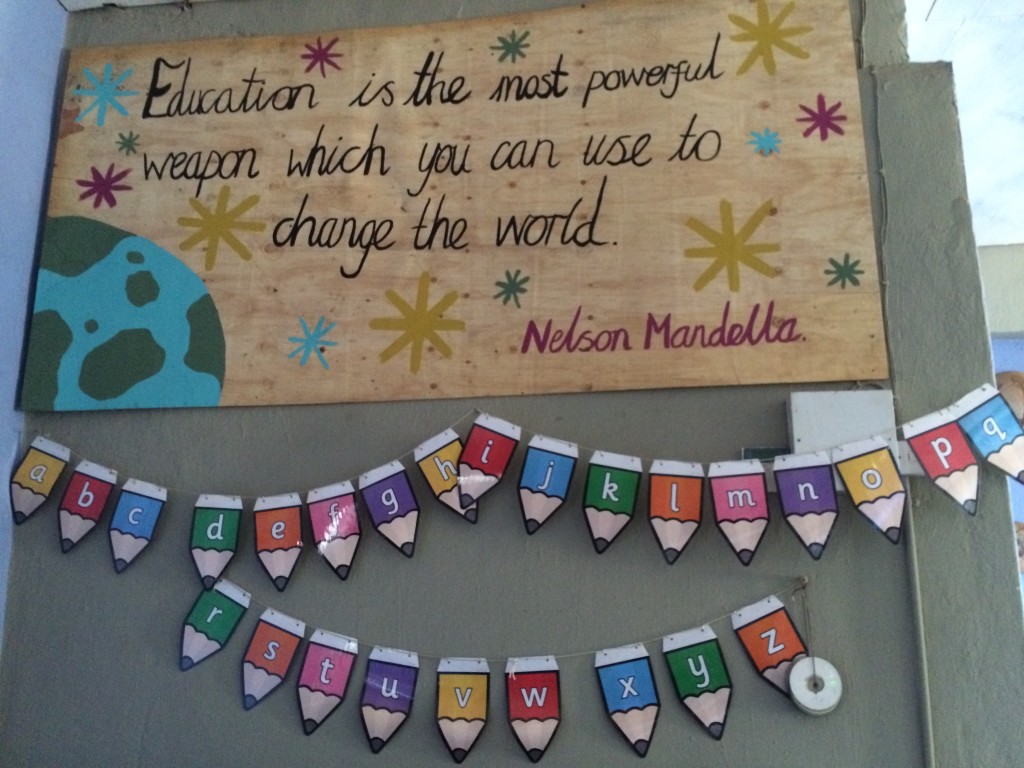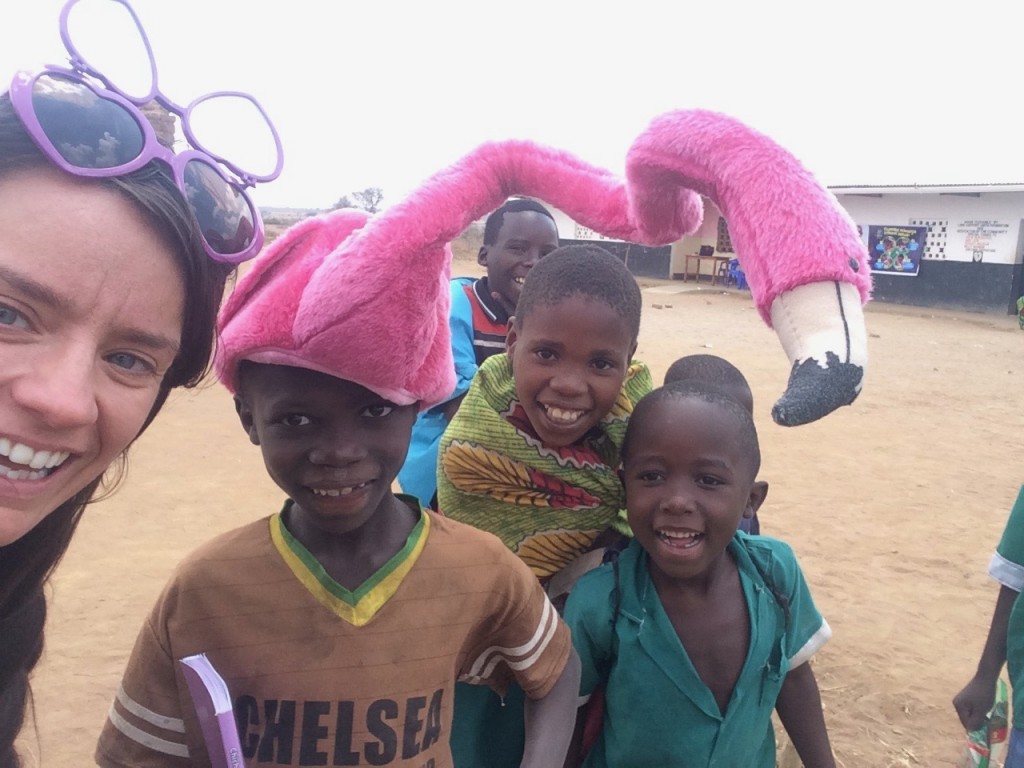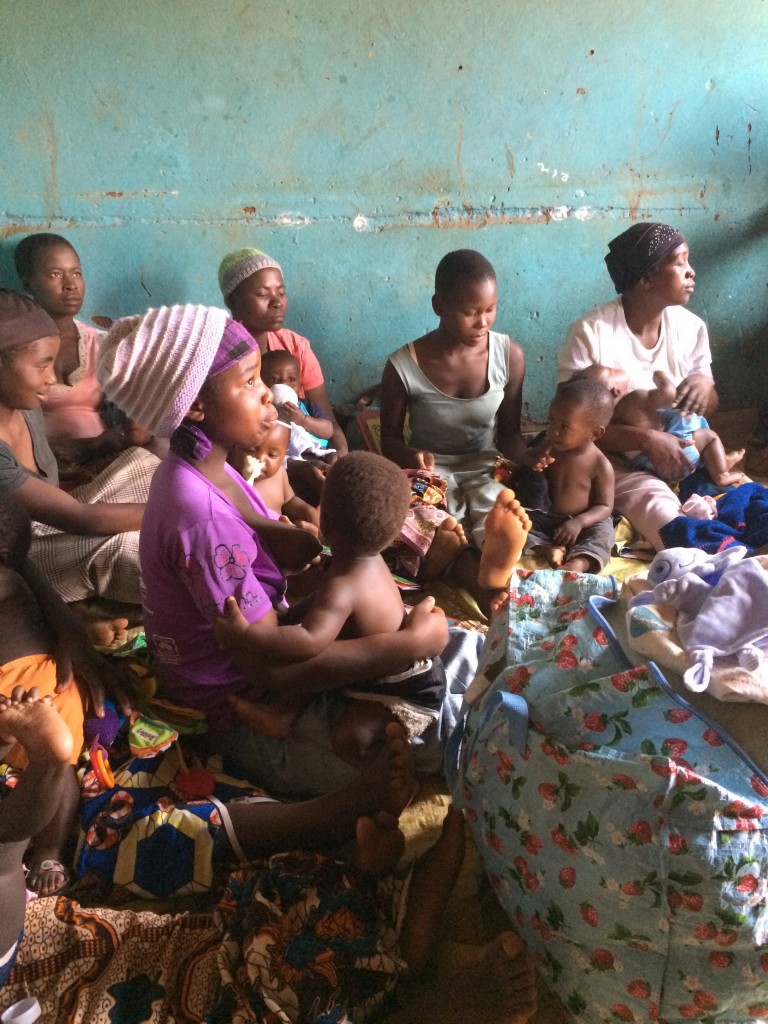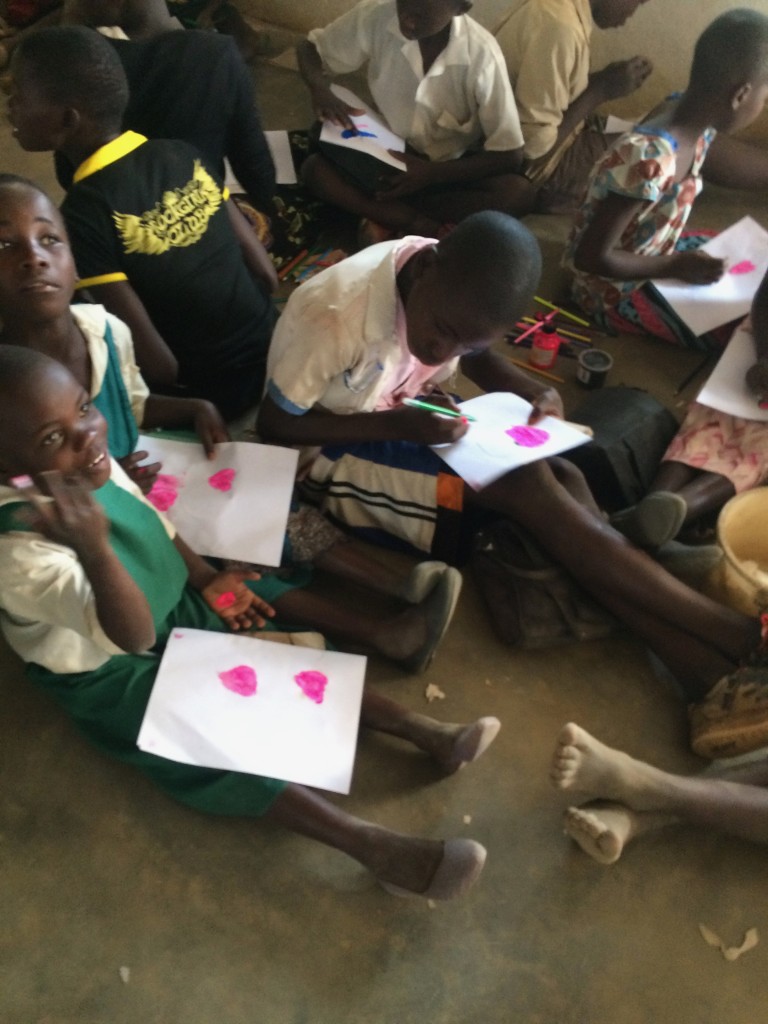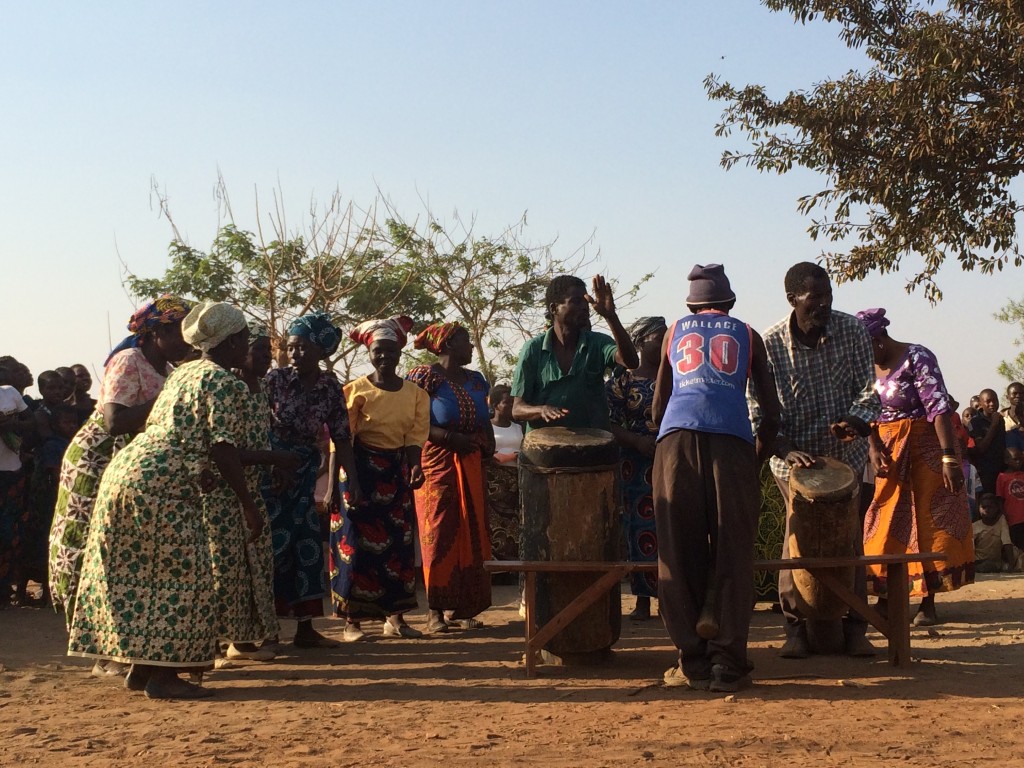Cosmic Pineapple went on a volunteer trip with Love Support Unite to Malawi, Africa. Working with local schools, orphanages and communities towards sustainable change.
I want to first say how humbled I was by this experience, how blown away by the beautiful souls I met and how in awe of what they go through on a daily basis. How it has made me question all of my actions and made me understand even more how we all need to support eachother and work together to lift us up as a whole on earth. It made me think how much we have in the western world, how little we respect what we have, how much emphasis we put on the material and, how much we waste. Through this experience I went through so many emotions – guilt, judgment, shame, love, compassion and empathy – and also absolute awe and joy of the strength, beauty, innocence and natural happiness I encountered. It was an experience where I questioned the entire workings of my existence, and all some of the people I met question is where their next meal is coming from.
The first thing that strikes me about Love Support Unite (LSU) is how they are working towards self sustainability. It’s a clever and long process designed to empower individuals and communities.
“The ethos is that we do not provide charity or aid, but empower communities with sustainable development programmes.” – LSU
LSU work mainly around Llongwe, the capital of Malawi, in local communities that cannot afford education and health. They want the people of Malawi to learn and work for themselves. From working with them I realize how some aid charities can disempower people. They mean well but the effects are only short lived. By giving things freely people do not learn for themselves and therefore rely on others to fend for themselves. I found a good way to look at it is that every country has probably been in the same situation as Malawi is now throughout the ages – building from scratch and learning to work with what they have. They live closely to and rely on the land and worth depends more on how much land they have, and how much they can get from this land through animals and farming. Through the knowledge learned by the LSU team, they can give skills and knowledge to help the people of Malawi thrive – and also help them retain their important connection to the land. On which note, this was my first time on African soil and I was deeply impressed. The energy of the land is strong and tough, deep and soulful. You have to have a certain kind of strength to thrive and prosper there and the people of Malawi have a strong sense of pride also. They have an inner wisdom I could never touch.
Love Support Unite – it says it all in the title. We need to learn we are all one on earth and less about ‘me’ and more about us all together – in our families, our friends, communities, our workplace, our town, city, country and the earth. Unity consciousness – we are all connected. It made me realise so many things about myself, things that will probably take a life time to master. And also reminded me how the world works in this magical synergy – everyone has their role to play and everyone helps eachother. LSU are strongly focused on long range planning, in order to make the changes that future generations will benefit from – with change comes growth.
On arrival on the first day we went straight to the Tilinanu Orphanage (Tili), which was an easy entry to our week of volunteering. Love Support Unite and Tilinanu Orphanage are two separate charities but are both ran by the same founders. Love Support Unite directly supports Tilinanu in many ways and they are able to do this through the sales of their unique fundraising tool ‘Love Specs’, which are a great invention. When you wear Love Specs you are happy as you see rainbow love hearts in lights through the refracted lenses and, through you radiating happiness, everyone you meet is happy. And with each pair you support the communities that LSU supports. It’s a grass roots charity that works close to the source and working here you can see exactly where your money goes to.
There are 34 children at Tili ranging from 6-18. Their parents have either passed away or cannot afford to support them. The Tili orphanage provides a home to the girls, as well as education, health care and food and gives them the opportunity to learn and grow.
We were a group of 15 volunteers and spent the first afternoon hanging out and getting to know the children, who were all happy, healthy and very excited to meet us (and wanting to dance to Justin Bieber). We also met the LSU team – Gayle, who was my initial contact and the two sisters who began Tilinanu in 2009 and LSU in 2013 – Alice and Nina work full time for both charities.
The LSU team – Alice, Nina and Gayle:
Day two was the hardest hitting. We went to the Mkunkhu school that LSU built and supports. Based in the rural area on the out skirts of Lilongwe, it currently educates 600 children in two rooms and when third school block is built, it will educate 800. Some of the children walk 10 kilometres to get there. The school also also provides literacy education for adults in the evening and enterprise training – giving micro loans with no interest and business skills, as well as health care services, technical lessons, advice and teacher training support.
We were greeted by 350 children singing ‘you are welcome’ amongst words in their local dialect, which completely overwhelmed me and made me cry. I am not sure why but I felt truly honoured to be in their presence. Dressed in mainly donation western clothes and mostly without shoes, the children ranged from tiny to large. Some were smiling – with the most beautiful smiles, some questioning, unsure, some scared, some very happy. One thing that really struck me was witnessing some of the children holding books with a pride like it was the most important thing on earth for them. And it is! Some things – like knowing how to read – we just take for granted.
We all naturally split off into groups and played activities like singing and dancing and one of the volunteers was a magician and played magic tricks. I had bought some fancy dress items with me to gift and children had some fun trying things on and seeing what the looked like in the camera phones.
Then we had a baby massage demonstration, which is one of the initiatives from LSU’s Little Blossoms arm, introduced in 2014, teaching mothers to massage their babies to help closer contact. The mothers sang a beautiful, joyful song in their local tongue that felt to come from deep inside their beings.
“We started off teaching staff in baby orphanages to use touch to help relax babies, build confidence and stimulate their development. When babies are in a relaxed state studies have shown they sleep better, digest food better and put on weight better. We then devoted to work in the community and trained four nurture ambassadors in different areas around Llongwe. From those strong groups that had formed we are setting up cooperative women’s enterprises – like bread baking, candle making and soap making.” – Gayle LSU
Afterwards, Nina gave a talk about the work at the school. At one point she broke down in tears as she told us that in the rainy season (the Northern hemisphere’s winter months), it is their famine season and some of the children only eat twice a week. Due to the rains being unpredictable, it can sometimes rain non stop and wash away their crops, which means no food. It gets so bad that some of the children die. The school currently provides one bowl of porridge per week and by extending and maintaining the farm aim to feed the children twice a week and eventually every day.
The school is not only bringing education, but is also practicing permaculture and growing crops, right now they have four hectares, divided into five zones. Zone one is the vegetable garden for tomatoes, mustards, cabbage, soya bean, green beans, carrots, etc. Zone two is the orchard – fruit trees, avocado, pear, mango, papaya, oranges and lemons. Zone three is staple food – maize, sweet potatoes, kasabahs. Zone four is the moringa tree plantation, a tree sometimes described as the miracle tree as it is high in calcium, vitamin E, C, Iron and much more. And zone five is a natural forest, where they work towards conservation and preserve natural trees and plants – for thatching, fire wood, food, medicine plants and more, as well as being a home to wildlife. They are aiming to grow the land to 10 hectares. I learnt a little from Oliver, their permaculture expert, that they work with farming that doesn’t need pesticides and works with the natural eco system and rhythms of nature. For example, they use lemon grass and plant banana trees next to the bore (water) hole, because they stop the spiders and mosquitos and and help stop stagnant water.
After this we did an art workshop with art materials and supplies that we had bought over. Around 150 children gathered in one of the rooms. We did a project called ‘show us your heart’. The children split into groups of 11 and one of the teachers translated that they should draw what they love inside of the heart. The volunteers split up and went around to the groups to show them how to do it. A lot of the children didn’t know how to draw and I had to physically demonstrate how to draw a heart as they were unsure how to use a pencil, they were also unsure of what they loved but it was mostly family. I was inspired to see their determination and passion and how they all influenced eachother in the group energy. Someone would lead and they would all look to see what the other was doing and would do the same. A few were individuals and did their own art pieces within – everyone was different, yet everyone flowed together.
The children finish late morning and in the afternoon the mothers get to learn literacy. Whilst this happened we all played outside to end the day and gave a ringworm clinic. Ringworm, malaria, diarrhea, herpes and HIV are big problems in Malawi.
We had bought some coconut oil out from Lucy Bee, as, amongst other things, coconut oil has natural anti fungal properties and is good to help cure ringworm. In the western world we can take a pill and it be gone, but here, they cannot afford medicine and a lot of people’s head crack open. I saw ringworm scars on a lot of children and adults.
There was one girl with ringworm and I think another illness, I am not sure what. I have never seen a child look so weak and sick and I will forever remember the fading look in her eyes, and also how strong and protective her mother was, stood next to her. Here the death of your child is a common occurrence most families go through. A lot of families have a lot of children and little means to keep them healthy and strong.
On day three we went to a village called Chisapo, to paint the newly built mother and baby shelter, which will be a centre for mums and babies to seek health checks, infant care, adult literacy classes and a place for the community to meet.
We spent most of the morning painting the walls. Everyone choosing a wall each to create some inspiration. At one point I heard some music outside and wandered outside to check it out. The local LSU reps had hired a sound system and got three DJs to play music for the community. The whole village came out and all the little kids were busting some serious moves! The mums joined in also and I danced with them. I have been to many festivals before and many parties, but I can’t explain it, this was my best festival moment yet – I was literally elated. I think the emotional charge of my experience so far and the magic of the dance combined just made this something so special and very ceremonial. One of the best things about dancing is that in this moment you are truly free. You forget everything and you dance. Everyone was so happy. They were dancing like this is what they came here (to earth) to do and they were going to do it properly. It was truly magical.
We finished the day opening up the centre and everyone came inside to see it. The Malawians love celebration and to sing and dance. After the DJs had finished they arranged a ceremony with role play drama, some local witch doctors did a ceremonial dance and some awesomely dressed strong ladies did a dance with singing.
Feeling tired and quite overwhelmed, on the weekend we went up to the beautiful Lake Malawi (close to where the Lake of Stars festival is held) and spent two days horseriding, including swimming on horseback at a place called Kande. We also went snorkelling and I got my hair braided by some local beach boys. It felt like a different world to Llongwe.
Back in Llongwe, on Monday, we had a busy day visiting many different locations the charity supports. The one that really stood out, was where LSU held a meeting for one of the massage groups. It was held in a room within an orphanage, where many of the children there have lost their parents to HIV and some also have it themselves. I was so sad to see their little faces and just wanted to hug them all. This centre provides food for them in the day time and in the night they have shelter in their local communities.
We then went to a school, another community project and back to the Tili Orphanage. I got told when in lake Malawi that clear quartz and rose quartz grows in abundance in Malawi (and indeed Africa!). I hadn’t been able to go hunting, but walking around the orphanage I saw a little shimmer in the earth and realised it was clear quartz. Some of the girls came over and I told them about crystals (they are learning English at school) and they proceeded to chip away at the earth for the crystal. We split the crystal up and I told them it is for good energy and suggested they should learn how to make necklaces!
On Tuesday we went to the Ministry of Hope, where Gayle also does baby massage. The Ministry of Hope is an orphanage, home to children under two. We all massaged babies, some with learning difficulties, some with HIV and played with them all morning. It was a really beautiful experience and they were all so gentle.
On Tuesday afternoon our work was done. Firstly, I want to say what amazing work the charity is doing. It’s very grass roots and very free flowing. You can bring an idea to them and they can help make it happen. We didn’t even touch the surface of their work in the little time we were there and a lot of us felt helpless and then questioned why we were thinking like this! It was a truly humbling experience and one I feel very fortunate to have had. On the outside we may seem to be the lucky ones, but I know for sure that people in the western world don’t have half as much gratitude or heart knowledge as some of the people I met here did. There is also a thing that when you open up to this you start to feel really helpless. It seems the more aware you become, the more you realize how bad things are in the world. But, I tried to rationalize, and I honestly think if you can just do one thing with your heart this is better than doing nothing at all. We also need to realize that when we help one person up we also help ourselves and we all need to think about the future of the planet we live on. Step by step.
#YouAreLove.
LSU are working towards building the first sustainable school along with other projects.
We believe in consistent support enabling the villagers to be able to stand on their own two feet properly but this takes time, and guidance – they are looking for people to sponsor teachers and children – for more information email sponsorship@lsufoundation.co.uk – if you would like to volunteer please email volunteer@lsufoundation.co.uk
Plans for the future – to finish the school and then evaluate how effective it has been and use that blue print to work with another Malawian community.
LSU is funded by Love Specs, donations, corporate partnerships, volunteers and fundraising events throughout the year. They are currently looking for more monthly donations.
Sponsor options:
To buy a pair of Love Specs, check http://lovespecs.org
This post was written by Kim Booth
